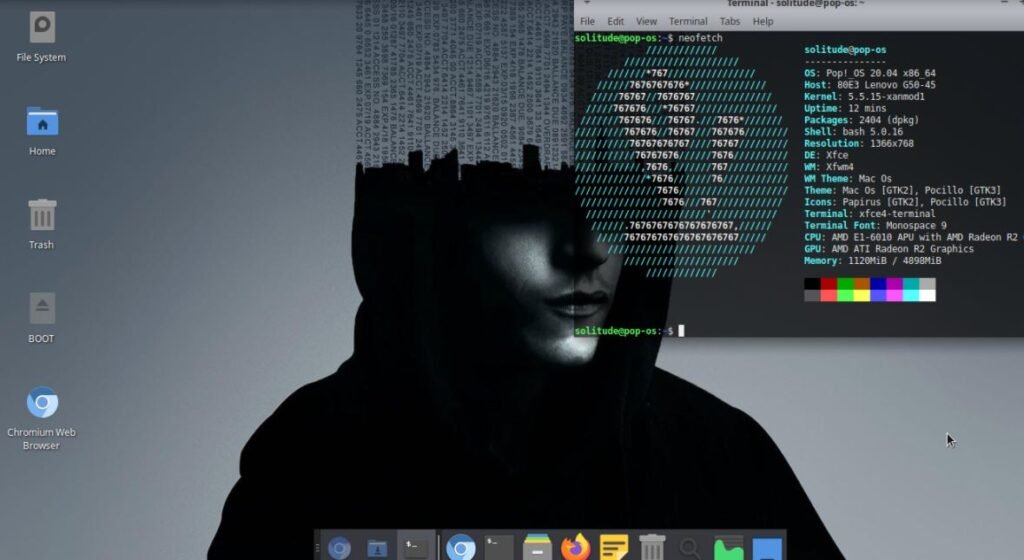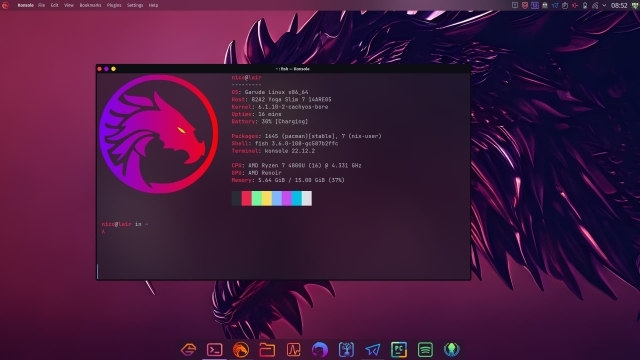Introduction
Gaming on Linux was once considered nearly impossible. Most gamers stuck with Windows because of its wide compatibility and support. But times have changed. With advancements like Proton, Lutris, and native Linux game support, Linux has carved a solid spot in the gaming world. If you’re tired of Windows or just want to experience the open-source world, choosing the best gaming Linux distro is the first step.
What Makes a Linux Distro Good for Gaming?
Not all Linux distros are created equal. For gaming, a good distro must tick a few boxes:
- Hardware Compatibility – Smooth GPU and CPU driver support is non-negotiable.
- Software Availability – Access to platforms like Steam, Lutris, and Wine.
- Performance and Stability – Low system overhead, fast updates, and reliable performance.
In short, the best gaming distro should just work out of the box without endless tweaking.
Benefits of Gaming on Linux
Why even consider Linux for gaming when Windows dominates? Here’s why:
- Open-source freedom – No hidden bloat or unnecessary software.
- Performance optimization – Linux often uses fewer resources, leaving more for your games.
- Security and privacy – Fewer viruses, trackers, and forced updates.
It’s like switching from a crowded highway (Windows) to a smooth backroad (Linux).
Challenges of Gaming on Linux
Of course, Linux isn’t perfect. Some challenges include:
- Compatibility issues – Not every game works natively.
- Learning curve – New users may find the Linux environment intimidating.
Still, with the right distro, most of these challenges can be minimized.
Top Gaming Linux Distros in 2025
Let’s dive into the best Linux distros for gaming this year. Each has unique strengths, depending on your needs and hardware.
Ubuntu GamePack
Ubuntu GamePack is specifically designed for gamers. It comes preloaded with:
- Steam, Lutris, and PlayOnLinux
- Proprietary drivers for NVIDIA and AMD
- Thousands of Windows-based games via Wine
Pros: Beginner-friendly, pre-configured for gaming
Cons: Can feel bloated with too many pre-installed apps
Pop!_OS
Developed by System76, Pop!_OS is a gamer’s dream.
- NVIDIA and AMD driver support out of the box
- Optimized for gaming performance
- Great hybrid graphics support for laptops
Pros: Seamless hardware support, sleek interface
Cons: Limited desktop customization compared to others

Fedora Games Spin
Fedora’s gaming spin is tailored for open-source enthusiasts.
- Comes with over 100 free and open-source games pre-installed
- Strong community backing
- Stable and secure base
Pros: Lots of preloaded games, very stable
Cons: Limited proprietary driver support compared to Pop!_OS
Manjaro Linux
Manjaro is an Arch-based distro, but much more user-friendly.
- Rolling release model ensures latest updates
- Access to AUR (Arch User Repository) for endless software
- Great Proton and Lutris support
Pros: Cutting-edge updates, customizable
Cons: Rolling updates can sometimes break things
Garuda Linux
Garuda has quickly risen in popularity among gamers.
- Gaming Edition with tools like Steam, Lutris, Wine, and Proton
- Performance tweaks enabled by default
- Eye-catching interface
Pros: Preloaded with gaming essentials, highly optimized
Cons: Resource-heavy compared to lighter distros
Linux Mint
Mint is known for being beginner-friendly, but it’s also a solid gaming distro.
- Easy to install and use
- Compatible with Steam and Lutris
- Very stable and lightweight
Pros: Ideal for beginners, stable performance
Cons: Not as gaming-focused as Garuda or Pop!_OS
SteamOS
Built by Valve, SteamOS is the backbone of the Steam Deck.
- Seamless Steam integration
- Proton compatibility for Windows games
- Designed purely for gaming
Pros: Best for Steam library gamers
Cons: Limited for non-Steam games without tweaking
Zorin OS
If you’re moving from Windows, Zorin OS feels familiar.
- Windows-like desktop
- Excellent Proton and Wine integration
- Smooth gaming experience
Pros: Easy for Windows users to adapt
Cons: Not as lightweight as Mint or as cutting-edge as Manjaro
Comparing the Top Distros
| Distro | Best For | Pros | Cons |
|---|---|---|---|
| Ubuntu GamePack | Beginners | Preloaded with gaming tools | Heavy on resources |
| Pop!_OS | NVIDIA/AMD users | Great driver support | Limited customization |
| Fedora Spin | Open-source lovers | Many pre-installed games | Proprietary driver issues |
| Manjaro | Advanced users | Rolling updates, AUR access | Updates can break system |
| Garuda | Hardcore gamers | Pre-optimized, gaming edition | High system resource use |
| Linux Mint | Beginners switching OS | Stable, lightweight | Not gaming-focused |
| SteamOS | Steam gamers | Native Steam support | Limited outside Steam |
| Zorin OS | Windows switchers | Familiar UI, Wine support | Slightly heavy |
Tips for Optimizing Gaming on Linux
Want to squeeze every bit of performance out of your setup? Try these:
- Use Proton & Wine – Run Windows games easily.
- Install Lutris – Centralized launcher for all games.
- Enable Game Mode – Tools like Feral’s GameMode improve performance.
- Keep drivers updated – Especially GPU drivers.
Think of it like tuning a car—you’ll always get better mileage with the right tweaks.
Future of Gaming on Linux
The future looks bright. Valve’s Steam Deck proved that Linux can handle mainstream gaming. With more developers adding Linux support, we might see Linux rival Windows in the gaming world sooner than expected.
Conclusion
Finding the best gaming Linux distro depends on your needs. If you’re a beginner, Linux Mint or Zorin OS is a safe bet. Hardcore gamers may prefer Garuda or Pop!_OS for maximum performance. And if you live in Steam, SteamOS is built just for you.
Linux is no longer a side option—it’s becoming a gaming powerhouse.
FAQs
1. Can all Windows games run on Linux?
Not all, but with Proton and Wine, most modern games work smoothly.
2. Is Linux faster than Windows for gaming?
In some cases, yes. Linux uses fewer resources, but performance depends on drivers and game compatibility.
3. Do I need special hardware to game on Linux?
No. If your hardware runs Windows games, it should work on Linux with the right drivers.
4. What is the easiest Linux distro for gamers?
Linux Mint or Pop!_OS are the easiest for beginners.
5. Is Steam Deck proof that Linux is good for gaming?
Absolutely. Steam Deck runs on SteamOS (Linux) and has made Linux gaming mainstream.





